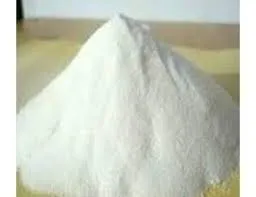
Dec . 05, 2024 06:10 Back to list
hydroxy ethyl cellulose uses
The Versatile Applications of Hydroxyethyl Cellulose
Hydroxyethyl cellulose (HEC) is a water-soluble polymer derived from cellulose, which is a natural biopolymer abundant in plants. It has garnered significant attention in various industries due to its unique properties, such as thickening, binding, emulsifying, and film-forming capabilities. This article explores the multiple uses of hydroxyethyl cellulose across different sectors, highlighting its importance in modern applications.
1. Construction Industry
One of the prominent uses of hydroxyethyl cellulose is in the construction industry, particularly in cement-based formulations. HEC serves as a thickening agent in tile adhesives, grouts, and plaster, improving their workability and stability. By enhancing the viscosity of these materials, HEC ensures that they adhere better to surfaces and remain workable for longer periods. Additionally, HEC can help retain water in dry mixes, which is crucial for proper curing and long-term strength of construction materials.
2. Personal Care Products
The personal care industry also benefits significantly from hydroxyethyl cellulose. It is commonly found in shampoos, conditioners, lotions, and creams due to its thickening properties and ability to stabilize emulsions. HEC enhances the texture and application of these products, making them more appealing to consumers. Moreover, it is recognized for its gentle nature, making it suitable for sensitive skin formulations and products designed for children. Its film-forming capabilities also contribute to improved product stability and moisture retention.
3. Food Industry
In the food sector, hydroxyethyl cellulose is utilized as a food additive, where it functions as a thickener and stabilizer in sauces, dressings, and desserts. Its ability to modify the texture of food products enhances the overall consumer experience. Furthermore, HEC is often used in gluten-free baking products, helping to improve dough consistency and moisture retention, which ultimately results in better-quality baked goods.
4. Pharmaceuticals
hydroxy ethyl cellulose uses

In pharmaceuticals, hydroxyethyl cellulose is employed as a binder and thickening agent in various formulations. It is used in tablet manufacturing, where it helps to ensure the uniform distribution of active ingredients. Additionally, HEC is utilized in topical formulations, such as ointments and gels, due to its ability to provide a smooth texture and improve the delivery of active compounds. Its biocompatibility makes it an excellent choice for drug delivery systems, enhancing the efficacy of medications.
5. Paints and Coatings
Hydroxyethyl cellulose is widely used as a thickener in the formulation of paints and coatings. It helps achieve the desired viscosity and improves the application properties of the paint, ensuring a smoother finish and better coverage. The use of HEC in water-based paints is particularly advantageous, as it enhances stability during storage and application. Furthermore, HEC contributes to the reduction of splattering during painting, making the process cleaner and more efficient.
6. Agriculture
In agriculture, hydroxyethyl cellulose is utilized in the formulation of controlled-release fertilizers and soil conditioners. Its ability to retain moisture and nutrients makes it valuable for improving soil quality and enhancing plant growth. Additionally, HEC is used in pesticide formulations, where it can act as a stabilizer and enhance the effectiveness of the active ingredients.
7. Cosmetics and Specialized Applications
Beyond its common uses, HEC finds applications in specialized fields, including biomedical engineering and tissue culture. Its biocompatibility and ability to form hydrogels make it suitable for various biomedical applications, including wound dressings and drug delivery systems. Moreover, HEC is used in cosmetic formulations for its thickening and stabilizing properties, contributing to the effectiveness and appeal of beauty products.
Conclusion
Hydroxyethyl cellulose is a multifunctional polymer with a diverse range of applications across numerous industries. Its unique properties make it an invaluable ingredient in construction materials, personal care products, food formulations, pharmaceuticals, paints, and even agricultural applications. As industries continue to evolve and seek innovative solutions, the demand for hydroxyethyl cellulose is expected to grow, solidifying its role as a versatile and essential component in modern formulations. The continued research and development of HEC will further enhance its applications, ensuring its place in future formulations for various uses.
-
Versatile Hpmc Uses in Different Industries
NewsJun.19,2025
-
Redispersible Powder's Role in Enhancing Durability of Construction Products
NewsJun.19,2025
-
Hydroxyethyl Cellulose Applications Driving Green Industrial Processes
NewsJun.19,2025
-
Exploring Different Redispersible Polymer Powder
NewsJun.19,2025
-
Choosing the Right Mortar Bonding Agent
NewsJun.19,2025
-
Applications and Significance of China Hpmc in Modern Industries
NewsJun.19,2025







